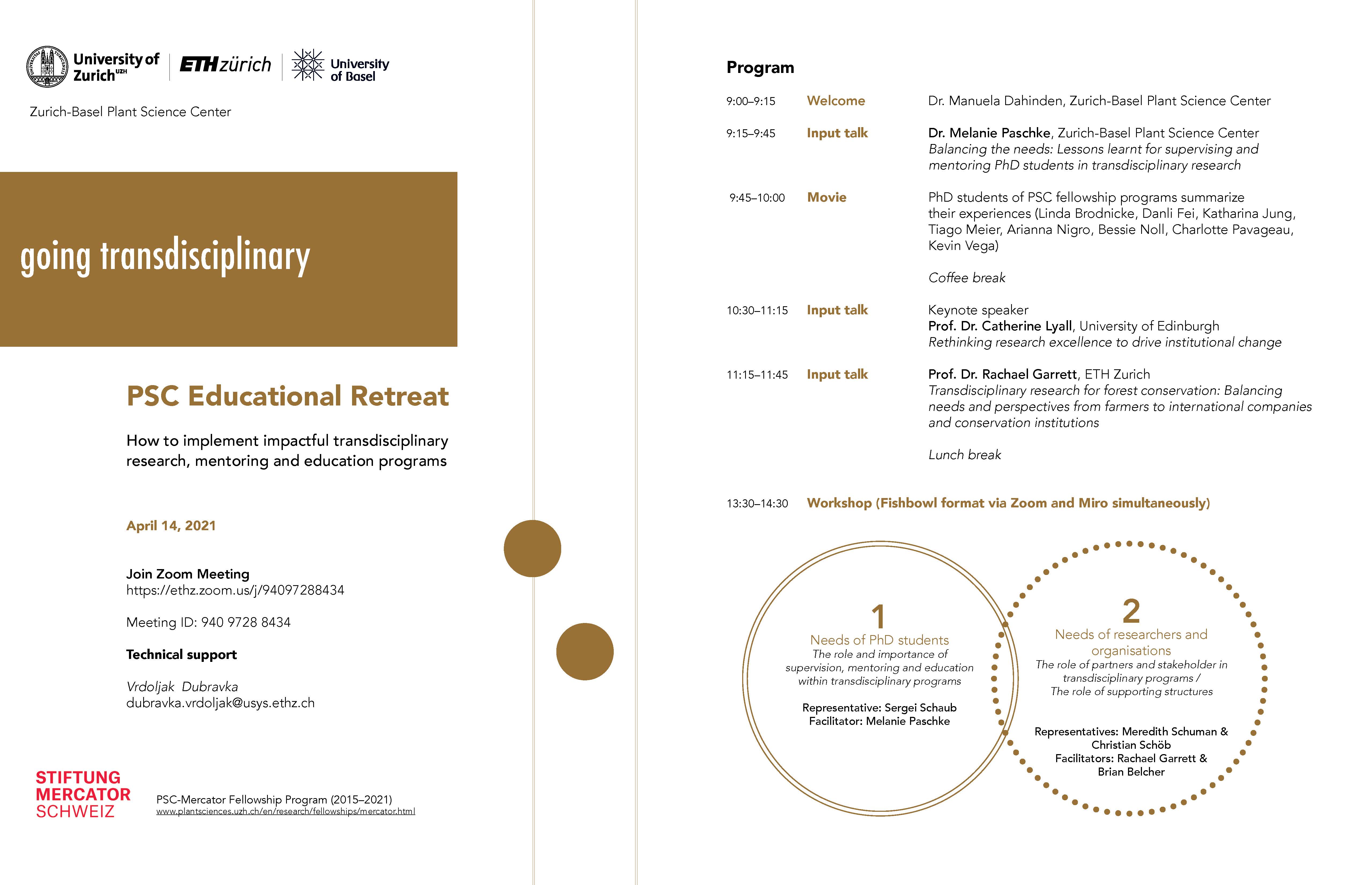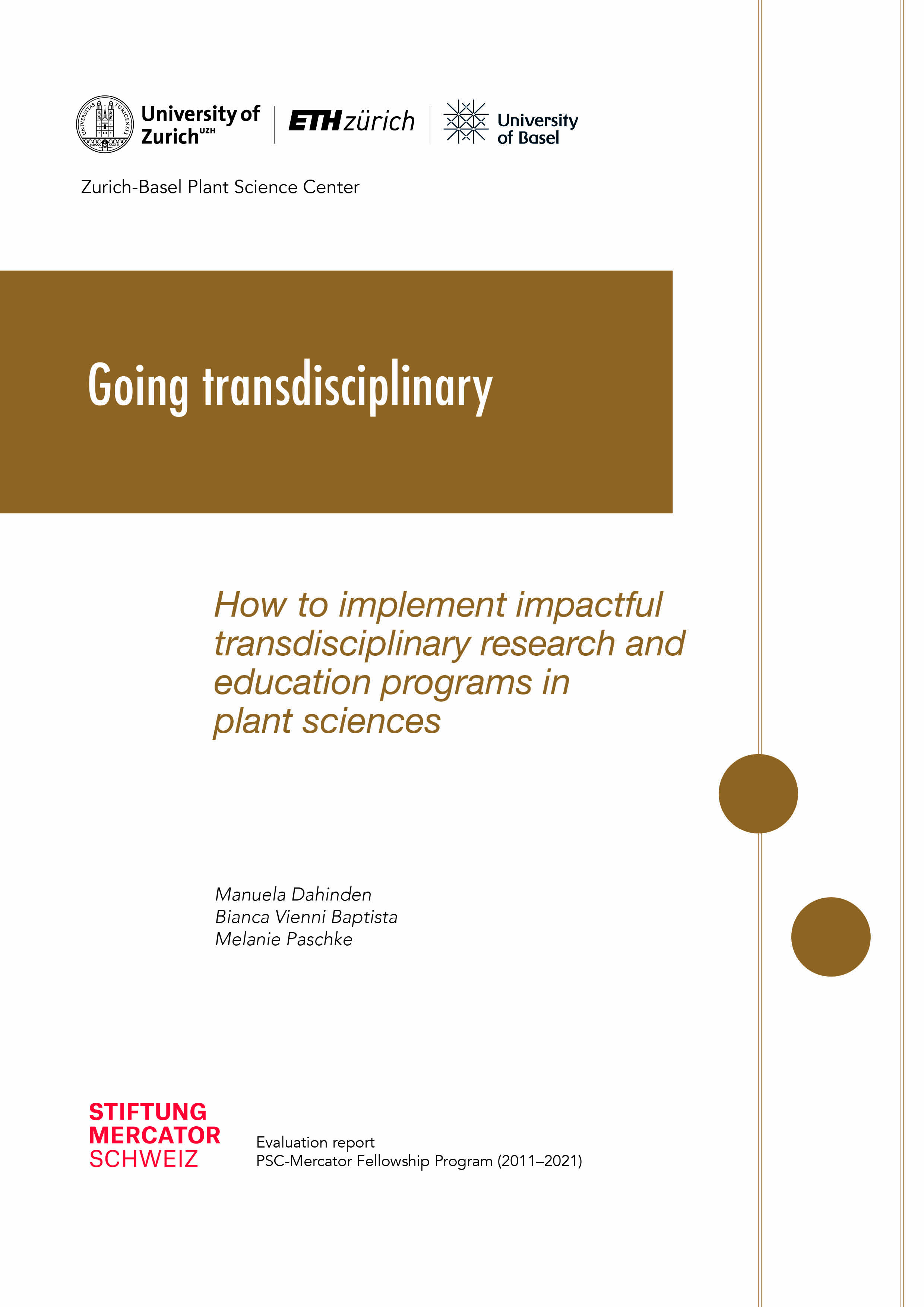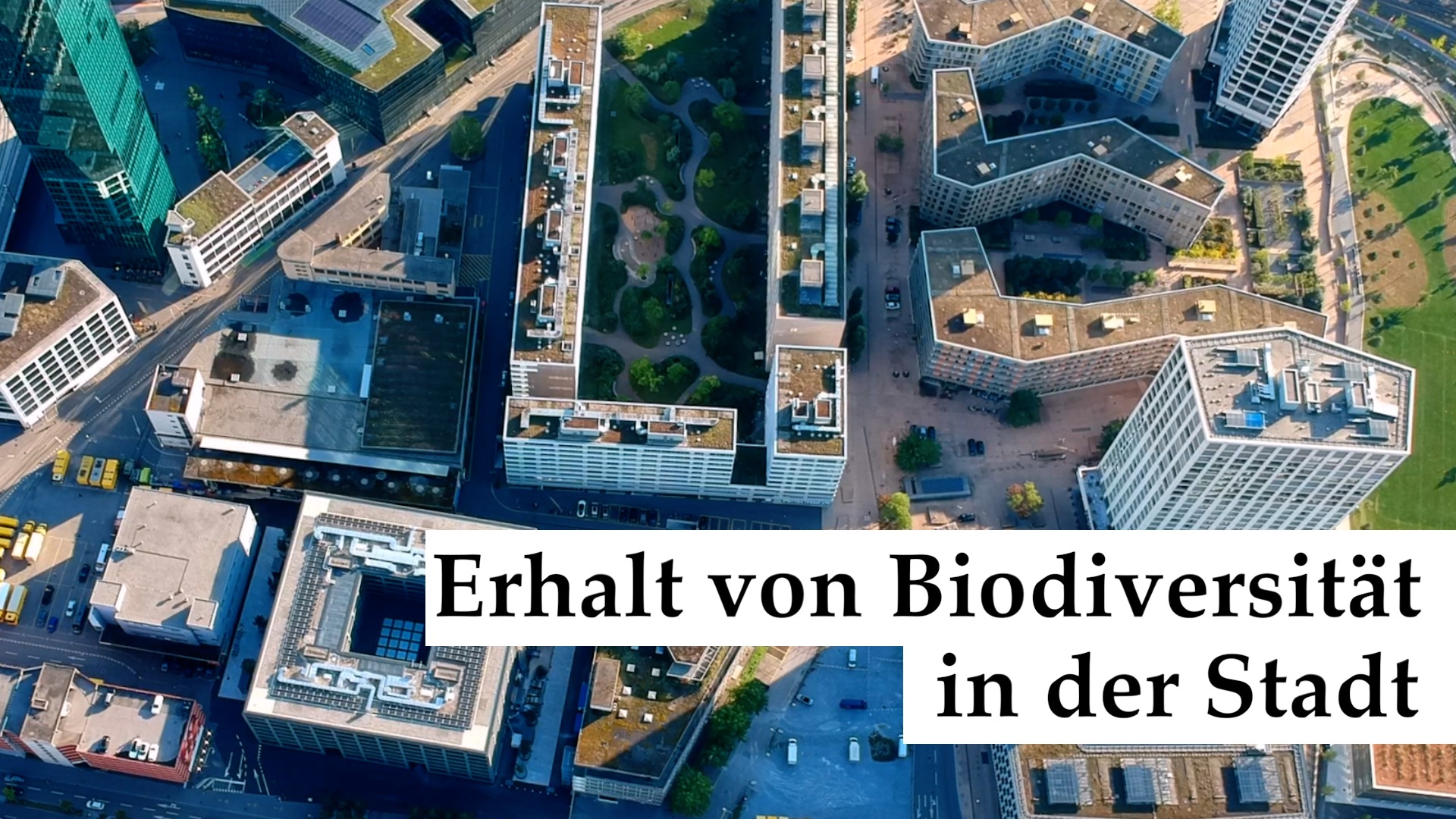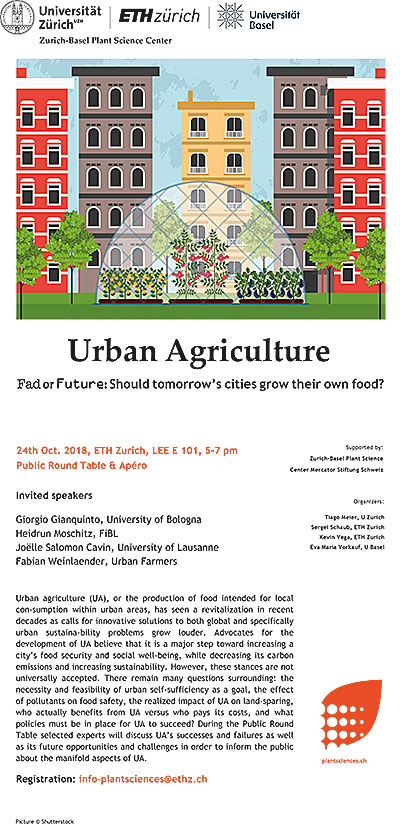Mercator-PSC Fellowships
Bridging plant science and society
Supported by the Mercator Foundation Switzerland, the PSC awarded four transdisciplinary PhD fellowships.
The research projects addressed socially relevant issues from the perspective of two academic disciplines and in collaboration with at least one relevant stakeholders. The fellows learnt how to combine different methods, perspectives and solutions. The PSC supported the 4-years research projects with its training and mentoring framework for research and knowledge sharing at the interface of plant science and policy. The fellows were enrolled in the PSC PhD Program Science and Policy.
Like all participants in this program they received an introduction to policy implementation and transdisciplinary research. They acquired competencies that will help them in dealing with authorities and stakeholders, as well as advocating the dialogue with media and the public.
Educational Retreat "going transdisciplinary"
April 14, 2021, online
29 participants (PIs, PhDs and industry partners) discussed on how to implement impactful transdisciplinary research (TDR) and mentoring in educational programs.
Dr. Melanie Paschke, Zurich-Basel Plant Science Center spoke about "Balancing the needs: Lessons learnt for supervising and mentoring PhD students in TDR". In a 12-minute video PhD students of former and current PSC fellowship programs (IDP-BRIDGES, Mercator and RESPONSE) summarized their experiences (Linda Brodnicke, Danli Fei, Katharina Jung, Tiago Meier, Arianna Nigro, Bessie Noll, Charlotte Pavageau, Kevin Vega).
Our keynote spreakers Prof. Dr. Catherine Lyall, University of Edinburgh and Prof. Dr. Rachael Garrett, ETH Zurich gave an insight in their personal experience with TDR. After lunch two fishbowl workshops were conducted in order to generate discussion and ideas. In the first fishbowl, the needs of PhD students and the role and importance of supervision, mentoring and education within transdisciplinary programs were discussed:
Representative Sergei Schaub, Mercator Fellow
Facilitators: Melanie Paschke and Manuela Dahinden, PSC.
In the second fishbowl, the needs of researchers and organisations especially the role of partners and stakeholders in transdisciplinary programs and the role of supporting structures were analysed:
Representatives: Prof. Meredith Schuman (University of Zurich) & Prof. Christian Schöb (ETH Zurich)
Facilitators: Proff. Rachael Garrett (ETH Zurich) & Prof. Brian Belcher (Royal Roads University, Canada)
Results were harvested on Miro.
Funded Projects
| Project Title | Project Leader | Practice Partners/Stakeholders | PhD Student |
|---|---|---|---|
| Changing snow loads and summer drought press alpine plants and force economy | A. Kahmen and E. Hiltbrunner
B. Abegg C. Marty |
Skiarena Andermatt Sedrun Korporation Ursern (Andermatt) Interacademic Commission for Alpine Studies (ICAS)
|
Maria Vorkauf (UniBas) |
|
Values of species diversity in grassland production – An ecological economic assessment |
N. Buchmann, R. Finger |
Agridea Arbeitsgemeinschaft zur Förderung des Futterbaus (AGFF) Federal Office for Agriculture (FOAG) |
Sergei Schaub (ETHZ) |
| Maintaining plant biodiversity in cities |
C. Küffer, D. Siegrist |
Grün Stadt Zürich |
Kevin Vega (ETHZ) |
| Papaya: History of its agricultural use and improvements to adapt to a changing climate |
U. Grossniklaus, J.P. Vielle-Calzada, J. M. Santamaria |
National Network “Papaya Produce-System” RED PAPAYA Comité Nacional Sistema Producto Papaya |
Tiago Meier (UZH) |
PSC-Mercator Fellows 2016
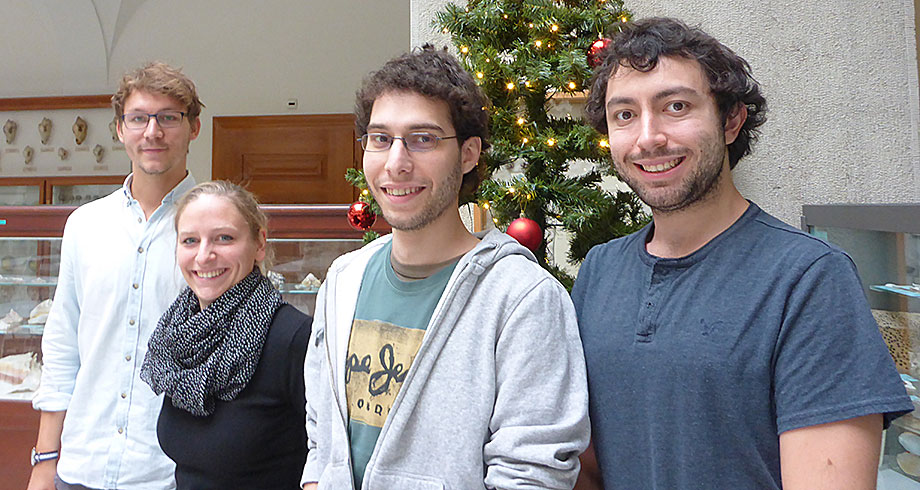
Sergei Schaub, Maria Vorkauf, Tiago Meier und Kevin Vega
Project Descriptions (Abstracts)
1) Changing snow loads and summer drought press alpine plants and force economy
Prof Ansgar Kahmen (University of Basel), Dr. Erika Hiltbrunner (University of Basel), Prof. Bruno Abegg (University of Innsbruck) and Christoph Marty (WSL)
This project combines disciplines such as climatology, alpine plant ecology, and socio-economy addresses the impact of climatic change in combination with summer drought on Swiss alpine grassland. By simulating a shift in the timing of snowmelt (unique snow removal/addition experiment) the PhD student will explore plant phenology, productivity, dry matter allocation to storage organs as well as the consequences on biogeochemical cycles (mineralization, uptake and losses of carbon and nitrogen). Moreover, this project addresses the socioeconomic impact of changing snow cover duration on winter tourism (e.g. costs of artificial snowmaking) in a case study (Ski arena Andermatt Sedrun).
2) Values of species diversity in grassland production – An ecological economic assessment
Prof. Nina Buchmann and Prof. Robert Finger, ETH Zurich
Grasslands are crucial for global food security. They cover the majority of the world’s agricultural area and provide – besides feed production – many additional ecosystem services. Previous research has identified positive and stabilizing effects of species diversity (SD) on grassland production, e.g. on biomass yields. A key challenge is to transform these findings also into economic terms, i.e., to quantify these potential benefits of SD in terms of farmers’ utility and investigate how these effects of SD affect farmers’ behavior. The PhD student will develop a novel, interdisciplinary ecological-economic framework to i) investigate and economically assess SD effects on quantity (total biomass) but also on quality (fodder values) components of grassland yields, ii) to focus on the interdependencies between the intensity of grassland use, SD, climatic risks (focus on drought) and the special role of climatic extremes, and iii) to assess interdependencies between insurance mechanisms and agricultural policies and SD.
3) Maintaining plant biodiversity in cities
Prof. Christoph Küffer (ETH Zurich) and Prof. Dominik Siegrist (HSR Rapperswil)
Without major action, massive biodiversity loss is expected in the next decades. Man –made environments will become as important as wilderness areas for conserving biodiversity. Indeed, urban ecology and urban ecological design are among the most rapidly growing research fields in ecology and planning, respectively. Integration of these complementary fields is considered a primary frontier in these fields and in sustainability science more generally. We aim to reach a comprehensive understanding of how plant biodiversity in the city of Zurich can be maintained through urban ecological design. The PhD student will assess fragmentation effects on the species, functional and genetic diversity of dry meadow patches, and, more specifically, on the population viability and connectivity of selected model species. These results will feed directly into a large-scale, 5-year biodiversity program run by our project partner, Zurich’s office of parks and open spaces (Grün Stadt Zürich). We expect that our novel planning process can become a model for ecological urban design in the Anthropocene cities.
4) Papaya: History of its agricultural use and improvements to adapt to a changing climate
Prof. Ueli Grossniklaus (University of Zurich), Prof. Jean-Philippe Vielle-Calzada (Langebio Cinvestav) and Prof. Jorge M Santamaria (Centro de Investigación Científica de Yucatán)
Papaya is a very important crop (i.e. commercial and subsistence farmers) with a very low genetic diversity between cultivars. Cultivation is hindered by its high heterozygosity, high susceptibility to disease, and the trioecious (three sexes: male, female, and hermaphrodite) nature of the plant. Hermaphrodites are preferred because of their reduced heterozygosity, resulting in higher crop uniformity, and their high yield potential. While females show stable sex expression, hermaphrodites are susceptible to sex reversal that is strongly influenced by the environment which becomes more likely due to climate change while posing problems to smallholder and commercial farmers. The underlying mechanisms of sex reversal are unknown. The PhD student will merge agronomic, molecular, and archeological approaches to (1) understand the molecular basis of sex reversal, (2) develop markers to identify accessions less prone to sex reversal for organic breeding programs, (3) shed light on the domestication of papaya on the Yucatan peninsula by integrating archeological and molecular data.
Bridging Plant Science and Policy – First fundig period
In 2011 the Mercator Foundation Switzerland supported four PhD fellowships with a focus on the interface between plant science research and policy. These projects are completed in 2016.
During the theses, the students conducted internships at a national or international organization, i.e., the Federal Office for the Environment (FOEN), UNEP, or the CITES Secretariat. The internship aimed at forging a closer link between research, policy and application. Furthermore, a policy-relevant green paper, developed in partnership with the internship-hosting institution, served as an extension of the science of each thesis.
